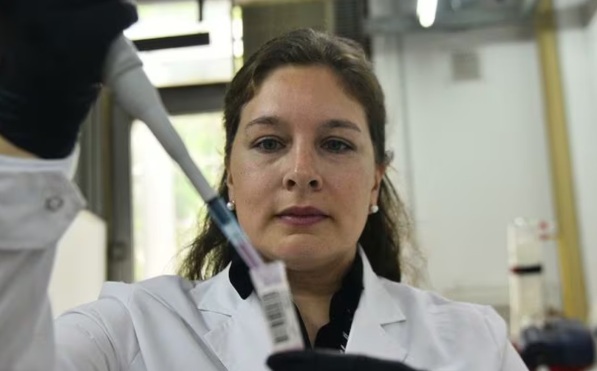Mónica Cristina García was born on May 25, 1987, in San Rafael, Mendoza, Province of Mendoza, and she is a researcher and professor specialized in nanomedicine.
García is connected to the field of medicine after obtaining her doctorate in Medical Sciences at the Faculty of Chemical Sciences of the National University of Córdoba, Argentina.
The Argentine researcher is also linked to teaching after completing a specialization in University Teaching. Regarding the research carried out throughout her professional career, García has contributed in different fields related to medicine and health, such as pharmaceutical nanotechnology and drug design, among others.
García and nanomedicine
García works specifically in the pharmaceutical field and conducts research focused on nanotechnology and its relationship with pharmaceuticals, as well as drug design.
Within nanomedicine, which can be defined as the branch of medicine that makes use of nanotechnology and whose objective is to improve human quality of life, the Argentine researcher conducts studies related to pharmaceuticals.
Pharmaceutical nanotechnology is related to issues aimed at preventing health problems through the design of drugs and medicines with nano-scale structures. García also develops studies linked to pharmacotherapeutic systems.
Within nanomedicine and its different branches, the Argentine researcher bases her work mainly on cancer.
In terms of her professional development, García is part of the National Scientific and Technical Research Council (CONICET). This is Argentina’s leading institution regarding the development of scientific and technological research at the national level.
Within CONICET, the Argentine researcher participates both in the Scientific and Technological Center of the National Scientific and Technical Research Council of Córdoba (CCT Córdoba) and in the Research and Development Unit in Pharmaceutical Technology (UNITEFA).
On one hand, CCT Córdoba is responsible for developing research within the province and represents CONICET in the region. On the other hand, UNITEFA also depends on the National University of Córdoba and aims to generate knowledge within the pharmaceutical industry.
The unit also seeks to develop research related to pharmaceutical sciences, especially pharmaceutical technology and biopharmacy.
The research conducted by García has earned her an important distinction, the L’Oréal UNESCO For Women in Science Fellowship Award.
This award seeks to encourage women’s participation in the scientific field. The Argentine researcher was first mentioned in the Fellowship category for her project “Hybrid nano-structured and bio-responsive materials to optimize the therapeutic action of antitumor drugs.”
Later, García won the award in that category with her work titled “Biometric nanomedicines for chemo and immunotherapy of breast cancer.”
The purpose of this project is to develop therapeutic alternatives related to cancer medicine that can target the tumor without damaging surrounding tissues.
Nanomedicine
Regarding the development of nanomedicine as a discipline, García has expressed that it offers several advantages in the field of health.
Nanomedicine has the potential to be applied across different branches of various disciplines and with multiple objectives.
In relation to cancer, in addition to enabling the detection of cancer cells, nanomedicine has the potential to enhance breast cancer therapy.
Through her research, the Argentine doctor seeks to propose another type of therapy besides conventional treatments in order to minimize side effects and direct the action of drugs to the tumor.
In this way, the goal is to reduce tissue damage and improve the effectiveness of diagnosis, prevention, and treatment of cancer.
In addition to her research, García has published different articles related to science and technology, especially on nanoparticles, pharmaceuticals, and pharmaceutical professional practice in Argentina.
She has also participated in various scientific events linked to topics such as industrial pharmacy, experimental pharmacology, drugs, and breast cancer.
García is one of the Argentine researchers developing nanomedicine within the country through her studies.
In addition, on several occasions, the Argentine researcher has spoken about the role that women can occupy within the scientific field and the importance of their participation in scientific and technological research.
Along with her studies, the Argentine doctor links nanomedicine to cancer, especially the development of oncological treatments, proposing it as another type of therapy.




